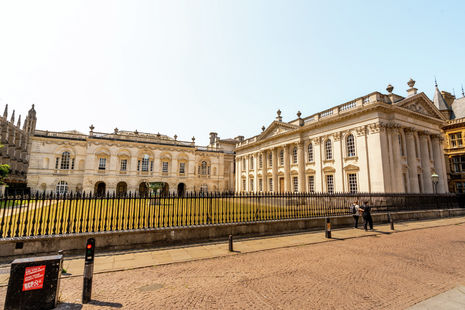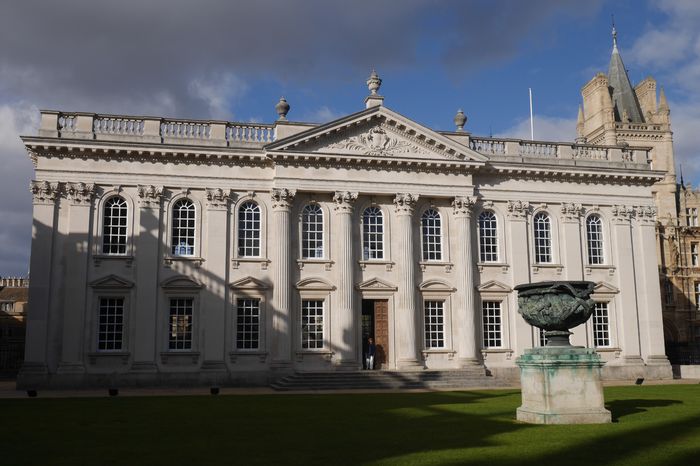Uni donations drop amid financial pressures
Unredacted report seen by Varsity showed donations fell by over £40 million, while international fee income grew

Cambridge University has seen a significant drop in donations in the last 12 months. The decline comes a year after the University chose to temporarily refuse donations from fossil fuel companies.
The University maintains that Cambridge remains “a robust institution” in “strong financial shape”.
An unredacted University financial report, obtained by Varsity, reveals that Cambridge received £107.3 million in donations in 2025, a significant drop compared to £150.2 million last year. Varsity understands that a one-off donation by Dell for the Dawn AI supercomputer led to “unusually high” totals for 2024.
These falling donations came alongside stagnant home fee income and a drop in endowment gains, although income from international students continued to grow. However an internal PwC report, seen by Varsity, identified that reliance on international fees is the number one risk for the University sector.
These losses coincide with wider financial pressures facing the University. In 2024, Cambridge ran a deficit of approximately £53 million, as an internal report claimed “there [was] no clear understanding of what has happened”. While the University reduced the projected deficit for next year to £39 million, Varsity reported that Cambridge will enforce a further 4% cut to departmental budgets across 2025-26.
It is not the first time that donations have caused a headache for the University’s finances, as Cambridge reneged on their temporary commitment to refuse fossil fuel donations. They began accepting such donations on the condition that they were “for a large gift, or equivalent value for a research collaboration (usually several million pounds) which could not be obtained elsewhere”.
The recent report also found that “due to the University’s intense teaching model, a large amount of money is lost teaching home students”. Cambridge received approximately £124.9 million in income from full-time home students, a slight increase on the 2024 income of £119.4 million.
Yet this year’s figure represents an overall drop of 8.4% in home student income over the last five years, falling from £136.4 million in 2020.
Alongside falling home fee income, the report found that “endowment income is forecast to fall in 2024/25”. The gains on the University’s investments are expected to drop by approximately 5% in the coming year.
Many UK universities depend on high international fees to cross-subsidise home students. The report says that there are “comparatively fewer international students [at Cambridge] than some other leading UK Universities”.
Yet the new Chancellor, Lord Smith of Finsbury, welcomed the “golden opportunity” for Cambridge to attract international students in the wake of US President Donald Trump’s restriction on foreign students.
He told The Times in May that Cambridge “should be rolling out the red carpet for the best and brightest in the world,” yet the University has faced challenges attracting international students.
Varsity analysis conducted in January showed that since Brexit there has been a 52% decrease in the number of EU undergraduates accepted to Cambridge. Concurrently, research carried out by PwC showed that sustained reliance on international student fees threatens the “financial sustainability” of leading universities.
When asked by Varsity about the University’s budgetary health and continued pressures, the new chancellor admitted that “[Cambridge’s] finances are facing challenges”. He stressed that similar challenges are “affecting higher education across the country”.
A University spokesperson told Varsity that: “The University continues to be in strong financial shape – despite the challenges facing the UK higher education sector as a whole – and is fortunate to have multiple income streams, most significantly its endowment, support from donors and other benefactors, and the surplus income from Cambridge University Press and Assessment. These are resources most other universities simply do not have.
“Cambridge has subsidised undergraduate teaching for many years, and because of the resource-intensive nature of the small-group teaching model relies on its diverse income streams to offset the costs of this. As with other institutions, our costs have risen in recent years due to inflation.
“The University of Cambridge remains a robust institution and sits at the heart of the ‘Cambridge cluster’, powering world-leading research, driving a thriving ecosystem of hundreds of spinout and start-up companies,” they continued.
 News / Cambridge academics sign open letter criticising research funding changes22 February 2026
News / Cambridge academics sign open letter criticising research funding changes22 February 2026 News / Supporters protest potential vet school closure22 February 2026
News / Supporters protest potential vet school closure22 February 2026 News / University Council rescinds University Centre membership20 February 2026
News / University Council rescinds University Centre membership20 February 2026 News / Hundreds of Cambridge academics demand vote on fate of vet course20 February 2026
News / Hundreds of Cambridge academics demand vote on fate of vet course20 February 2026 Comment / A tongue-in-cheek petition for gowned exams at Cambridge 21 February 2026
Comment / A tongue-in-cheek petition for gowned exams at Cambridge 21 February 2026









